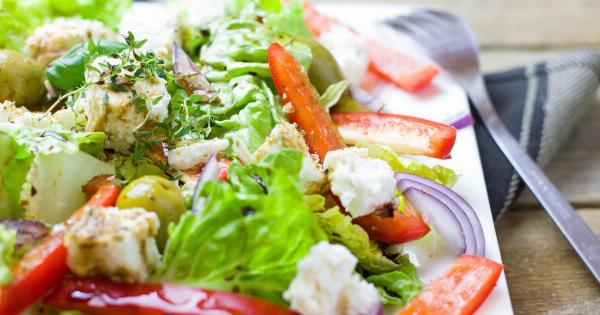Garlic is a delicious ingredient in many dishes, but unfortunately, it can leave a lingering odor in your mouth. It is not only embarrassing but can also make people uncomfortable around you.
The good news is that there are natural remedies that can help combat bad breath caused by garlic odor. This article will explore some of these remedies, including their benefits and how to use them.
1. Parsley
If you are looking for an instant remedy to combat bad breath, parsley is an excellent option. The herb contains chlorophyll that has a deodorizing effect on bad breath. It helps to neutralize the odor and leaves you with a fresh breath.
You can chew on fresh parsley or chop it up and sprinkle it on top of your food to help combat garlic breath.
2. Green Tea
Green tea has a deodorizing effect on your breath and helps to get rid of the garlic odor. The tea contains polyphenols that help to neutralize the odor-causing compounds in garlic.
Drinking green tea after eating garlic can help reduce the intensity of the odor. For best results, brew fresh green tea and drink it while it’s still warm.
3. Apples
Apples contain enzymes that help to break down the sulfur compounds in garlic that cause bad breath. Eating an apple after meals can help neutralize the garlic odor.
The natural sweetness and crunchy texture of apples also help to stimulate saliva production in your mouth, which helps to rinse away food particles and bacteria that cause bad breath.
4. Lemon Juice
Lemon juice is another natural remedy that can help combat garlic breath. It contains citric acid that helps to neutralize the odor-causing compounds in garlic.
Squeeze some fresh lemon juice in a glass of water and swish it around in your mouth for a few seconds before spitting it out. This will help to freshen your breath and neutralize the garlic odor.
5. Fennel Seeds
Fennel seeds have a sweet and licorice-like flavor that helps to freshen your breath and combat garlic odor. Chew on a few fennel seeds after eating garlic to help neutralize the odor.
You can also make a mouth rinse by boiling fennel seeds in water and using it as a mouthwash after meals.
6. Baking Soda
Baking soda has natural deodorizing properties that help to get rid of bad breath. It neutralizes the acids in your mouth and helps to freshen your breath.
To use it as a remedy for garlic odor, mix a teaspoon of baking soda in a glass of warm water and use it as a mouthwash after meals.
7. Mint Leaves
Mint leaves contain essential oils that help to freshen your breath and combat garlic odor. Chewing on fresh mint leaves after eating garlic can help to neutralize the odor.
You can also make a mouth rinse by boiling mint leaves in water and using it as a mouthwash after meals.
8. Ginger
Ginger has antimicrobial properties that help to fight mouth bacteria that cause bad breath. Chew on a small piece of fresh ginger after eating garlic to help freshen your breath.
You can also make a ginger tea by boiling fresh ginger in water and drinking it after meals.
9. Water
Drinking water can help to rinse away food particles and bacteria that cause bad breath. It also helps to keep your mouth hydrated, which helps to promote saliva production.
Drinking water after meals can help to neutralize the garlic odor and freshen your breath.
10. Yogurt
Yogurt contains live probiotic cultures that help to fight bad breath caused by garlic odor. The bacteria in yogurt help to neutralize the odor-causing compounds in garlic and freshen your breath.
Eat a small amount of plain yogurt after meals to help combat garlic odor.































